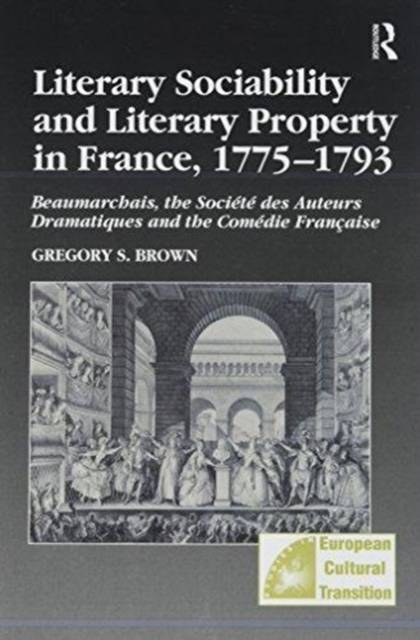
- Afhalen na 1 uur in een winkel met voorraad
- Gratis thuislevering in België vanaf € 30
- Ruim aanbod met 7 miljoen producten
- Afhalen na 1 uur in een winkel met voorraad
- Gratis thuislevering in België vanaf € 30
- Ruim aanbod met 7 miljoen producten
Zoeken
Literary Sociability and Literary Property in France, 1775-1793
Gregory S Brown
€ 102,45
+ 204 punten
Uitvoering
Omschrijving
The first full-length, scholarly study of the Société des auteurs dramatiques (SAD), this book focuses on the first professional association for creative writers in European history. Brown traces how Beaumarchais led this group's fight for literary property legislation and worked to raise the status of men of letters. This study focuses on the form and meaning of eighteenth-century literary sociability, at the intersection of political reform, commercial theater, and writers' anxieties about their public identities.
Specificaties
Betrokkenen
- Auteur(s):
- Uitgeverij:
Inhoud
- Aantal bladzijden:
- 196
- Taal:
- Engels
- Reeks:
- Reeksnummer:
- nr. 33
Eigenschappen
- Productcode (EAN):
- 9781138272903
- Verschijningsdatum:
- 26/10/2016
- Uitvoering:
- Paperback
- Formaat:
- Trade paperback (VS)
- Afmetingen:
- 156 mm x 234 mm
- Gewicht:
- 285 g

Alleen bij Standaard Boekhandel
+ 204 punten op je klantenkaart van Standaard Boekhandel
Beoordelingen
We publiceren alleen reviews die voldoen aan de voorwaarden voor reviews. Bekijk onze voorwaarden voor reviews.











